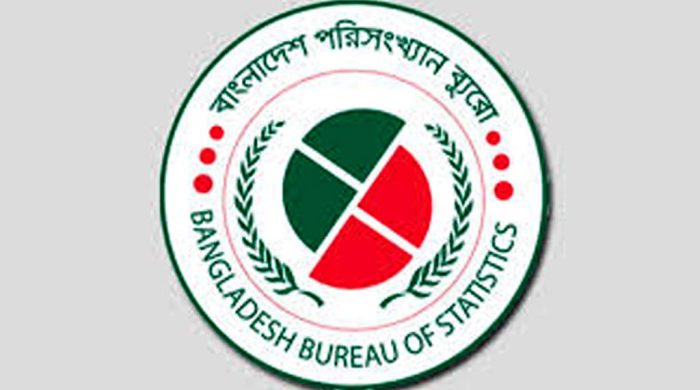Only experts to guide check of BBS data discrepancy

- Update Time : Saturday, October 26, 2024
- 22 Time View

The Bangladesh Bureau of Statistics will take approval from experts to ensure data accuracy before making national data public in a bid to overcome the disrepute it had earned for alleged data manipulation during the immediate past Awami League regime, ousted amid a mass uprising on August 5.
Its officials said that the bureau had already drafted around half a dozen expert committees to assist its eight wings responsible for preparing data on the country’s gross domestic product, per capita income, inflation, demography and health, industrial units and labour.
The draft committees await approval from the planning adviser, bureau director general Mohammed Mizanur Rahman told New Age on Wednesday.
He said that the committees comprising experts from non-governmental organisations, teachers, public officials and economists.
The statistical bureau, which has been facing criticisms from economists and businesses for producing allegedly inconsistent data, will from now on seek validation of its data from experts, according to directives from planning adviser Wahiduddin Mahmud.
Wahiduddin, who replaced Salehuddin Ahmed as the planning adviser on August 15, directed the bureau to take approval from the proposed committees regarding data preparation and its dissemination as well.
The measures would bring an end to the bureau’s previous practice in which it was forced by the Awami regime to seek approval of the political authorities for preparation and dissemination of data, bureau officials said.
Former World Bank Dhaka Office chief economist Zahid Hussain said that positive outcomes of such directive had already been seen with the inflation update on July in August.
The overall inflation jumped to 11.66 per cent in July, higher than 10.9 per cent average inflation in 2010–11, the last instance when average inflation crossed 10 per cent. The excessive inflation in July was caused by staggeringly high food inflation of 14.10 per cent that month as supply chain network was heavily disrupted in the curfew imposed by the then Awami government to tackle the fierce demonstrations across the country.
Zahid Hussain noted that another major reason for the sudden rise in the inflation was that the bureau officials, who overcame fear of reprisal, published the real inflation in July, showing the excessive increase in the inflation by around 3.66 percentage points between July and June.
Many instances of political interferences occurred in the statistical bureau’s work during the 15-year Awami rule, especially in the past several years amid the prolonged economic downturn.
In July 2017, then planning minister Mustafa Kamal introduced the quarterly release of inflation data replacing the traditional and the best international practice of monthly update.
The move not only sparked criticisms, but also tarnished the bureau’s image, bringing into question its authenticity in calculating vital national statistics, including gross domestic product, per capita income and population census.
In another instance in 2022, the statistical bureau published the inflation update of August and September in October that year, prompting the International Monetary Fund to ask reasons for the delay in connection of a $4.5 billion loan programme for which negotiation began that year between the lender and the Awami regime.
Bangladesh in a bid to tackle severe dollar shortages received in 2023 the first tranche of the loan programme, which will continue up till 2026.
In 2022, the World Bank in its report titled ‘Country economic memorandum: change of fabric’ identified unexplained growth of 3.7 percentage points between 2015 and 2019 to highlight the doubtful calculations by the statistical bureau while economists said that business plans, commodity demand and supply, and financial products were invariably deeply connected with data accuracy.
Bureau director general said that the committee on the ‘White paper on the state of Bangladesh economy’ in its report would highlight the issue of data manipulation, if any such things occurred.
Accuracy and dependability of the government statistics is among 15 topics of the white paper preparation committee led by Centre for Policy Dialogue’s distinguished fellow Debapriya Bhattacharya.
Other areas to be focused in the white paper are: challenge of macro-economy, review of growth in gross domestic product, inflation and its shocks, poverty, inequality and danger, internal revenue mobilisation, fixing priorities on public expenditure, balance of foreign debt and its threshold, review of mega projects, actual picture of banking sector, situation in the energy and power sector, business-environment and private sector investment, illegal money and its smuggling, youth employment and dynamics of the labour market, overseas job market and rights of the expatriate Bangladeshi workers.
Debapriya Bhattacharya has already stated that the committee is expected to describe the depth and breadth of data manipulation by the statistical bureau and called very weak the foundation of different projections made during the Awami regime over the past 15 years.
On August 28, the interim government that succeeded the Awami regime formed the full committee on the ‘White paper on the state of Bangladesh economy’.
The government has asked the committee to submit its report within 90 days from the start of its operation.















